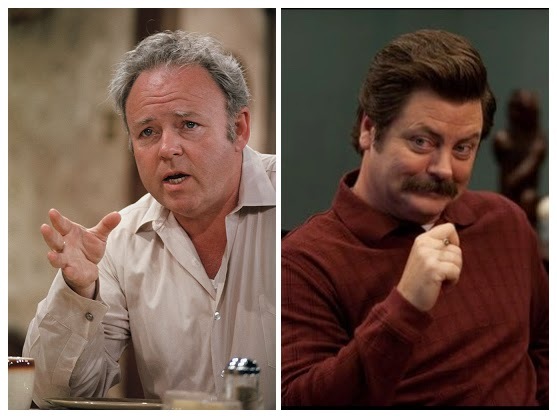“I was raped by my doctor, which is so bittersweet for a Jewish girl.”
Sarah Silverman’s most infamous joke is a very nearly perfect modern specimen of the form: economical, in the form of a single sentence, with a whiplash turn in the middle that escalates to the climax. What raises the joke to the state of art is that it feels like a joke about rape but is, in fact, a joke about jokes. What begins as alarming and discomfiting (the report of a rape) ends up in that most familiar, traditional, and comfortable territory of humor: unthreatening jokes about the traditional ethnic stereotypes that have long been a mainstay of American humor. The nice Jewish girl and the doctor–but horrifying.
Silverman’s joke begins in the back alley and ends in the Borscht belt. There is always a background of economic and social anxiety in Jewish American humor—there was a reason that the protective mothers of an excluded minority wanted their sons to become doctors. You know how that works in jokes: An old Jewish pedestrian gets sideswiped by a taxi on 42nd Street. A woman who witnesses the accident runs to his side, yells for someone to call an ambulance, and then takes off her jacket and folds it up as a pillow to put under his head. “Just relax,” she says, “help is on the way.” “Thank you,” he replies. “Are you comfortable?” she asks. He considers the question: “Eh. I make a living.”
The case of Jewish humor tropes is distinct from, but not entirely unrelated to, the case of African American humor tropes: Richard Pryor did not tell jokes about poor black people who were counting on their daughters to marry a doctor. One longstanding line of criticism of African American comedy has been, in effect, that black comedians often make black Americans the butt of jokes that white people would tell if it were socially acceptable: black jokes about black dysfunction, as opposed to Jewish jokes about Jewish comfort. It is worth noting here that those Jewish ethnic stereotypes came into play during a period in which American Jews had, as a whole, slightly lower average incomes than non-Jewish Americans, as opposed to today’s significant income advantage for Jewish Americans. (There are conflicting accounts, but it probably was well into the postwar years before Jewish Americans altogether attained a relatively high average income.)
It is tempting for a comedian, or any performer, to comfort the audience, to flatter the audience, though it also is the case that the comfortable sociological background of so much conventional humor gives comedians something to disrupt. In his golden age, Eddie Murphy told a lot of jokes about surly drunk uncles and children chasing ice-cream trucks—jokes that assume for their context functional families, or at least cohering ones, families that celebrate holidays together and that have cookouts and live in neighborhoods in which the children can play outside and turn manic at the sound of the ice-cream truck. In his Raw and Delirious era, Murphy was a kind of inverted Silverman, so deeply marked by the conventions of American domesticity that he was delighting his audiences with his Jackie Gleason impersonation and (wildly homophobic) jokes about The Honeymooners, an Eisenhower-era cultural totem that had been off the air for 30 years by the time of Murphy’s apex in the 1980s. Murphy’s old material probably would not fly today, but meditate on Mel Brooks’ response when an admirer observed that Blazing Saddles is a “movie you couldn’t make today.” Brooks scoffed: “You couldn’t make it then!”

Comedians pretend to be social outsiders who (odious phrase) “speak truth to power,” but, in the main, comedians serve convention and power—they comfort the comfortable. Most of those old Jewish jokes are about Jews who are—in the joke’s word—comfortable. We tell jokes about Jews who have made it, who have achieved some kind of middle-class security (or real affluence) and who have enough social and personal capital to have a reasonable hope that their children will become doctors. We don’t (and didn’t) tell as many jokes about poor Jewish immigrants living in poverty in Chicago.
Silverman, at her best, did not tell the comfortable kind of jokes. She took those old comforting stereotypes and tropes and did something wicked with them, leaving audiences—mainly and especially Gentile audiences—in the position of wanting to laugh at a joke that references safe and familiar forms but unsure whether that was still permissible. At her best, Silverman is a deft and intelligent enough comedian that her jokes are free of rhetoric. She raises the question but does not put it explicitly in the form of one, and she is safe from the error of amateurs and hacks: trying to answer the question she raises. That’s at her best.
At her worst, Sarah Silverman could pass for an American talk show host. Which, of course, is something she was for a while, with her short-lived I Love You, America.
The hackery and general unfunniness of contemporary American political humor is—well, yikes: the husk of The Onion, the decaying Babylon Bee, most of the late-night hosts, Saturday Night Live’s “Weekend Update” when Colin Jost isn’t making jokes about how much fun it is to be Colin Jost, etc. There is plenty of comedic potential in a period during which the most striking political image is not that uniformed busboy standing over the dying Robert F. Kennedy but the specter of Robert F. Kennedy Jr.’s entombed brain-worm—an era in which the Republican Party is best symbolized by the bark-at-the-moon visage of the QAnon shaman preparing to storm the Capitol. But our comedians make less of the available material than their antecedents did. Gerald Ford was Solon compared to Joe Biden, but Chevy Chase figured out how to wring a great deal of humor out of him. And then there’s Donald Trump, whose main challenge to comedians is that he already is a caricature whose grotesquery is difficult to exaggerate.
Perhaps the fact that I went so immediately to the presidential candidates is illustrative of the problem: The sports-mascot aspect of contemporary American politics has made political identitarians of many Americans, and, especially, of many comedians, who have become pundit-adjacent thanks to the style of comedian-pundits such as Jon Stewart and pundit-comedians such as my old friend Greg Gutfeld. Phil Hartman’s celebrated SNL account of Ronald Reagan—goofy grandpa in public, merciless Machiavelli behind closed doors—was not meant to flatter the president, but it wasn’t a partisan indictment, either, nothing for a campaign commercial. Many Republicans, including those close to Reagan, nodded along with the performance, recognizing the truth of it.
(Hartman might well have despised Reagan, as so many other entertainers did at the time, but his comprehension of him as a comedic subject was larger than parochial partisanship. That wasn’t a case of “it’s funny because it’s true”—it was a case of “it’s funny because it’s whole.” The contradictions and tensions that make good comedy work require a capacious taking-in of the subject that our current partisan sensibilities—which are hysterically moralistic—do not permit.)
Michael J. Fox’s star-making sitcom turn as Alex P. Keaton wasn’t meant to flatter young Republicans, either—the writers’ sympathies clearly were with Keaton’s champagne-hippie parents and their progressive pieties—but it was funny, and it was funny in large part because the funny lines given to Alex P. Keaton (you really do have to write the whole thing out, like J. Alfred Prufrock—it’s part of the joke) were the kind of things a reasonably witty and self-aware young Republican in the Reagan years might have said or thought. The character of Alex P. Keaton was, like Sarah Silverman’s joke about Jewish jokes, a kind of rondeau redoublé, satisfying the formal requirements of the art while also turning back in on itself in a self-referential and complicating way. Alex P. Keaton was both an accurate representation of the political and social aspirations of a certain kind of young American of the time and a skeptical look at the real worth of those aspirations. Of course, it ended up being a one-note performance: When you use a microscope instead of your naked eyes, you see a great deal more of a good deal less.
Political tribalism hurts comedy in part by making cowards of comedians.
Political tribalism hurts comedy in part by making cowards of comedians. Sarah Silverman’s perfect joke is not the kind of thing you say if you desperately want people to like you. But practically every joke Jimmy Kimmel tells now comes with an invisible footnote reading: “I am a good person and I think you are a good person and please, please, please like me.” Even when contemporary comedians make jokes about progressives or Democrats, the jokes (typically) end up being a kind of furtive progressive self-celebration.
That’s not new. “I’m not a member of any organized political party,” Will Rogers’ famous joke goes. “I’m a Democrat.” That isn’t a criticism of Democrats, of course, but a celebration of their supposedly freewheeling and liberal ways. (Never mind that when Rogers made that joke in the mid-1930s, the Democrats were the most ruthlessly organized and disciplined political organization in the United States, with Franklin Roosevelt remaking the American state, radically expanding the power of the presidency, and doing so while maintaining a coalition that included both agrarian segregationists in the South and Catholic union bosses in the North.) Contemporary progressive comedians end up being the equivalent of the candidate in the job interview who says his greatest weaknesses are that he works too hard and cares too much.
The problems of progressive comedians are different from the problems of conservative (which isn’t quite the right word anymore, but you know what I mean) comedians because of the very different places progressives and conservatives occupy in the entertainment industry, the media, and the wider pop-culture apparatus. But conservative-ish humorists are entirely capable of making themselves hostage to the same kind of tribalistic cowardice: Witness the degeneration of the Babylon Bee in the Trump years and, especially, under the influence of figures such as current managing editor Joel W. Berry, one of those humorless (that they are humorless would be news to them) dorks who go in for trad-chad posturing on social media, boasting about how happy his wife is being “barefoot and pregnant, feeding chickens in her flower garden.”
That kind of mind doesn’t produce very much in the way of real humor, because all it knows how to do is to sneer. Sneering can work—goodness knows George Carlin made a splendid fortune by saying largely unremarkable things with a remarkably effective sneer—but it works only within the limits of the relatively small theater it can fill. (There are niches and there are niches: Sure, you can get 55,000 people at the Westminster Kennel Club show, but that’s pretty much the whole world as far as that kind of thing goes, and it’s still 100,000 fewer people than came out to see Tennessee play Virginia Tech in 2016.) The Babylon Bee’s sneering Trumpiness has intensified over the years, and, of course, it has grown less funny. One might read a simple cynical motive into that: The dopey tribalism may not produce particularly interesting humor, but it is pretty good for web traffic. The Babylon Bee has indeed experienced significant growth: It had substantially more traffic in April than, say, National Review, but a good deal less than the Daily Wire. (And, yes, these are the proper points of comparison.) The site’s 11.2 million visitors last month ain’t nothing, but that’s a rounding error on Fox News’ website, which draws nearly 400 million visits a month. But the financial explanation isn’t the only possibility.

One can admire a true believer, even one who believes in batty and implausible things. (I recently overheard a group of young, college-age men talking about conspiracy theories, and one of them stated, as a self-evident fact, that Amelia Earhart is still alive. She was born in 1897.) One can laugh at the true believer, but rarely with the true believer. True believers are almost never funny, even when they are not tedious fanatics. I tend to agree with David Foster Wallace that irony is overrated, but so is crushing earnestness.
Greg Gutfeld used to advise guests on his old show, Red Eye, not to try to do comedy. That was good advice. It was a funny late-night show, meant to be irreverent, but when the producers wanted a comedian, they booked a comedian, on the theory that this worked as a kind of leavening: The show could be funny without everyone on the show trying to be funny. But the catastrophizing habit—everything is so very important right now that we have to be very angry about it all the time!—makes anything but the most shallow kind of humor impossible. Humor requires emotional distance rather than emotional urgency, dispassionate observation rather than cheerleading and sermonizing, cool wit rather than scalding rage. Wit is almost always ultimately self-deprecating—Oscar Wilde, Lytton Strachey, and Noël Coward were very serious men who went out of their way to emphasize the shallow and trivial aspects of their artistic personalities—but the modern political partisan cannot afford such self-deprecation, because he understands the entire political contest to be a matter of raising or lowering the relative status of one social group in competition with another. In this view, a Jon Stewart or a Jimmy Fallon is interchangeable with a Rachel Maddow or a Dana Bash, because the pundit and the comedian serve the same function.
Humor requires emotional distance rather than emotional urgency, dispassionate observation rather than cheerleading and sermonizing, cool wit rather than scalding rage.
When humor is instrumentalized for political purposes—when it stops being art and is degraded to the state of rhetoric—it is used for one thing only: lowering the relative status of disfavored groups. In fact, much of the humor targeted by progressives at their cultural and political enemies isn’t comedy at all, in the formal sense, but only an attempt to associate hated rivals with low-status people and low-status communities. Some of you will remember sneering reports on the Tea Party movement (RIP) that made a point of focusing on elderly, obese, not-obviously-well-off people using mobility scooters—a trope that has become a standard part of progressive humor that grew and mutated in the era of Trump rallies. It isn’t that there aren’t jokes to be made there—mobility scooters, as any Walmart shopper can tell you, have a very considerable built-in potential for hilarity. But they don’t actually make the jokes: It is enough to simply point to unattractive people and declare, “Ecce, homo!” The gleeful cruelty in the comedic (in theory) targeting of figures such as Marjorie Taylor Greene reminds me a little of the pro-death penalty demonstrators I used to see celebrating outside of executions in Texas: It isn’t that the condemned doesn’t have it coming, but the exercise does not seem to bring out the best in those doing the condemning. And though it may be useful as political rhetoric, it does not often succeed as humor.
“Oh, but don’t you know what time it is?” comes the response from either camp. I know, I know, I have heard: We are living in extraordinary times, the next election presents an existential threat to democracy and liberty and goodness and decency, etc. In such an environment—so goes the argument—it doesn’t matter whether humor succeeds as humor: All it needs to do is to be useful as political rhetoric, and, if it helps to secure the victory in November, then it has done its job. That is pure philistinism, if our old friends at Hamas will permit the use of the term. It constitutes a denial of the proposition that anything is worth doing for any reason other than the pursuit of power and advantage.
“We make out of the quarrel with others, rhetoric, but of the quarrel with ourselves, poetry.” So wrote William Butler Yeats, who might accurately have said the same thing about rhetoric and comedy, which at its best is a kind of poetry. He went on:
Unlike the rhetoricians, who get a confident voice from remembering the crowd they have won or may win, we sing amid our uncertainty; and, smitten even in the presence of the most high beauty by the knowledge of our solitude, our rhythm shudders. I think, too, that no fine poet, no matter how disordered his life, has ever, even in his mere life, had pleasure for his end. … Nor has any poet I have read of or heard of or met with been a sentimentalist. The other self, the anti-self or the antithetical self, as one may choose to name it, comes but to those who are no longer deceived, whose passion is reality.
Reality is that thing humankind cannot bear very much of. The old comic tradition held that the court jester, or fool, was the one man who could say what everybody is thinking, who could present an unpleasant reality even to the king. In our time, we have more forums for political speech and political comedy—and less censorship—than ever. The problem isn’t in saying what everybody is thinking—it is in thinking what everybody is thinking, which a good comedian cannot afford to do. Comedy clarifies. It sheds light on assumptions and relationships and fears that might not have been apparent to the audience before. Rhetoric can clarify—or it can make things more opaque. It is merely instrumental and can be put to any use those with some skill in it choose.
We have chosen muddiness, mushiness, and intellectual and moral flabbiness. Tom Wolfe might have done magnificent things with the material presented by these few years after his death, but one wonders whether he could have found an audience. We know what audiences want right now: Fox News, pornography, Trevor Noah—the creature comforts of the already too-comfortable mind.










Please note that we at The Dispatch hold ourselves, our work, and our commenters to a higher standard than other places on the internet. We welcome comments that foster genuine debate or discussion—including comments critical of us or our work—but responses that include ad hominem attacks on fellow Dispatch members or are intended to stoke fear and anger may be moderated.
With your membership, you only have the ability to comment on The Morning Dispatch articles. Consider upgrading to join the conversation everywhere.